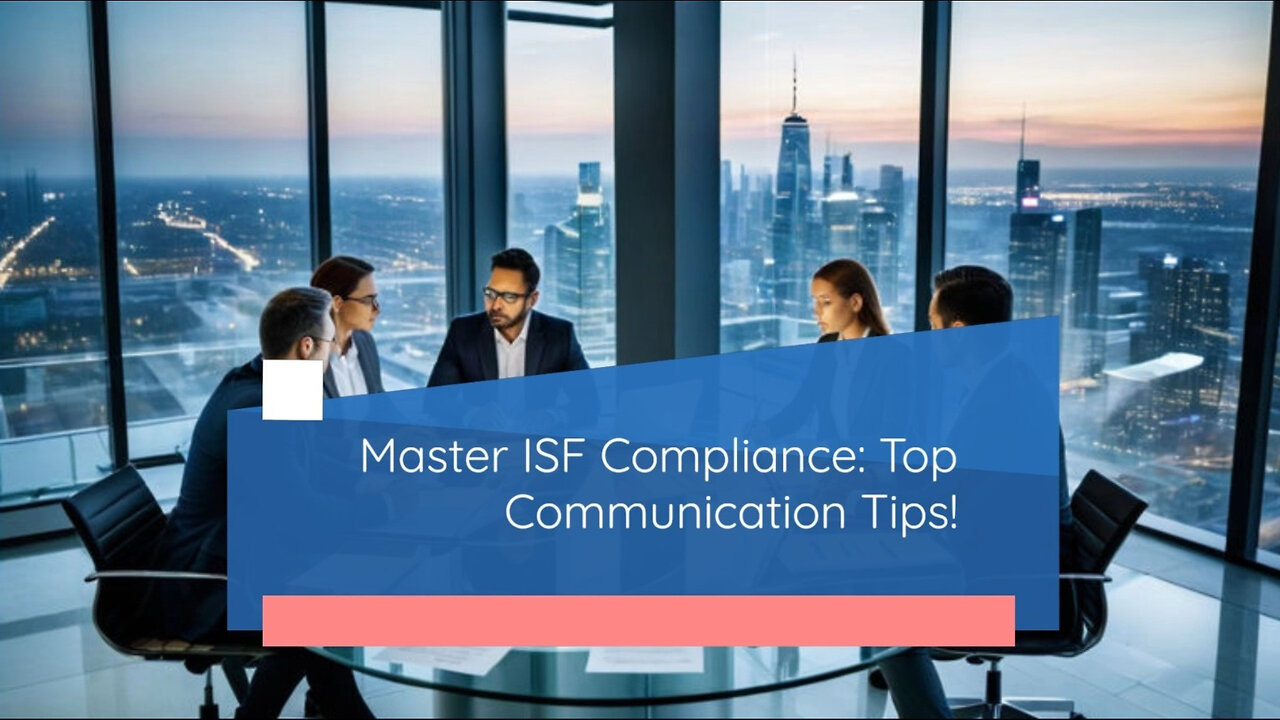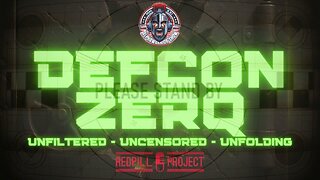Premium Only Content

Navigating ISF Compliance: Communication, Collaboration and Best Practices!
ISF Checklist || 805-970-7918 || [email protected] || www.isfchecklist.com
In today's video, we will be discussing best practices for ISF compliance and strategies for communication and collaboration within the customs brokerage industry. Ensuring ISF compliance is crucial for importers as it helps to streamline the customs clearance process and avoid costly penalties. The first best practice is establishing strong lines of communication between importers, customs brokers, and other stakeholders. This can be done through regular meetings, clear communication channels, and the use of technology to facilitate information sharing. By maintaining open lines of communication, importers can provide accurate and timely information to their customs brokers. Collaboration within the customs brokerage industry is another best practice that should be fostered. Continuous training and professional development programs can help customs brokers stay updated with the latest regulations and best practices. Collaboration can also be achieved through the sharing of knowledge and resources among industry peers. Leveraging technology is also an effective strategy for ISF compliance. The use of modern software and systems can help streamline the ISF filing process, reduce errors, and improve efficiency. For example, automated software can ensure that all required data fields are completed accurately, reducing the chances of data discrepancies and potential penalties. Regularly reviewing and updating compliance strategies to adapt to regulatory changes is essential. Staying informed about new requirements and implementing necessary adjustments proactively will help importers and customs brokers avoid compliance issues. Lastly, ongoing communication with customs authorities is crucial. Regularly engaging with Customs and Border Protection (CBP) and other relevant government agencies can help importers and customs brokers stay informed about any changes in regulations or requirements. In conclusion, by following these best practices for ISF compliance and strategies for communication and collaboration, importers and customs brokers can ensure smooth customs clearance processes and avoid penalties.
#usimportbond
#isfcustomsbroker
#uscustomsclearing
#isfentry
Video Disclaimer Here: This video is purely educational and has no ties with the US government.
00:26 - Establish strong communication channels between importers, customs brokers, and supply chain stakeholders to ensure accurate and timely information exchange for ISF compliance.
01:21 - Foster collaboration within the customs brokerage industry through training programs and sharing knowledge and resources to improve overall compliance strategies.
01:58 - Leverage technology to streamline the ISF filing process, reduce errors, and improve efficiency in compliance management.
02:22 - Stay up to date with regulatory changes, regularly review and update compliance strategies, and engage with customs authorities to proactively manage compliance in the customs brokerage industry.
-
 2:55:50
2:55:50
The Pascal Show
10 hours ago $0.07 earnedMASSIVE CHAOS?! Transportation Secretary Hold Presser On Air Travel & More
1501 -
 1:06:35
1:06:35
TruthStream with Joe and Scott
1 day agoZero Limits Round Table with Joe Vitale, Lisa Schermerhorn and more of the cast!
2.15K -
 LIVE
LIVE
Lofi Girl
2 years agoSynthwave Radio 🌌 - beats to chill/game to
663 watching -
 7:40
7:40
Blabbering Collector
11 hours agoLEAKED: Draco Malfoy, Hooch, Neville Longbottom! | Harry Potter HBO Show Update, Wizarding News
71 -
 3:06:35
3:06:35
Badlands Media
14 hours agoDEFCON ZERQ Ep. 017: Tesla Tech, Ancient Power & The Fight for Human Consciousness
211K47 -
 3:11:56
3:11:56
TimcastIRL
7 hours agoDOJ Launches FULL INVESTIGATION Into TPUSA Antifa RIOT, Media Says Mostly Peaceful | Timcast IRL
249K76 -
 3:16:27
3:16:27
Barry Cunningham
11 hours agoBREAKING NEWS: SOLVING THE HOUSING CRISIS BY UNDERSTANDING VETERANS DAY! AND IT'S MOVIE NIGHT!
76.7K32 -

SpartakusLIVE
9 hours agoWZ Solos to Start || NEW Battlefield 6 - REDSEC Update Later
22.4K1 -
 1:01:56
1:01:56
ThisIsDeLaCruz
17 hours ago $9.81 earnedInside Kenny Chesney’s Sphere Part 1: Exclusive Backstage Pass
34.4K1 -
 2:09:50
2:09:50
DLDAfterDark
6 hours ago $2.41 earnedA Complete Look Into The Glock "V Series"! Pistol In Hand! VERY GAY!!
19.6K1